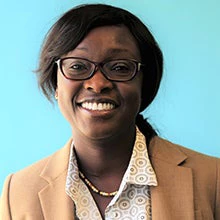 Productive women in El Salvador. World Bank
Productive women in El Salvador. World Bank
Women worldwide continue to live in societies that provide them unequal opportunities to succeed. In many parts of the world women are less valued than men and at times their rights are violated leaving them with little recourse. On the positive side, we see progress in many important dimensions, such as increased participation in the economy and leadership globally.
Such progress gives us hope that societies today are less tolerant of inequality and injustice than past generations. Unfortunately, progress across countries and regions is unequal, and in some parts of the world women are seeing worsening conditions; especially when it comes to violence against them.
In El Salvador, a Central American country that is well aware of the importance of women in its development plan, it is still a challenge to make meaningful inroads to address societal norms that perpetuate disadvantages, biases and exclusion of women. Despite progress in education participation of girls and political representation of women, violence—intrafamilial, social, sexual, institutional—against women in the country is among the highest in the world (and the number of homicides is the highest in the Latin American and Caribbean region).Very few Salvadoran women (among the lowest in the region) participate in the economy or see opportunities for themselves in the country (compelling them to emigrate), and social norms limit how much girls can reach their full potential and how much women can participate in society.
Currently, El Salvador is one of 14 countries in the world with at least 50% of women ministers. This is a concerted strategy by the government to level the playing field for women to have a voice in policy and decision-making in the country. And even though other parts of government still have minimal representation of women—27 out of 262 mayors, for example—there is increased recognition in government and society that having women in leadership roles is good for development. Unfortunately, patriarchal societal norms such as prioritizing men before women for jobs and leadership are likely to limit real progress.
There have also been meaningful gains in achieving parity in literacy among those below 30 years of age, and in improving school attendance for both genders. But taking girls out of school in early years is still common, especially among poorer households, which perpetuates lower school completion and limits access to productive work later in life. Another area of improvement observed is in the reduction of pregnancies among teenagers between 15 and 19.
Years of effective campaigns focused on sexual and reproductive health has helped reduce teen pregnancy in the country and rates are now in par with the regional average. Unfortunately, pregnancy among young girls, 15 or less, remains high; and many of these pregnancies are the result of sexual violence. The gender observatory for El Salvador shows that 75% of sexual abuses against women were experienced by girls younger than 17 in 2019. This includes 848 cases against very young girls (under 11 years of age). Such high incidence of violence against girls can have both short-term and long-term social, psychological and economic consequences that hamper these girls’ personal development.
Violence against girls and women takes many forms and in El Salvador it affects seven out of ten women throughout their life. Fifty-three percent of those who report are victims of psychological violence while the rest report having suffered physical or sexual violence. The country has the second highest women murder rate in the world, and the highest in the Latin American and Caribbean region. The vast majority of women’s deaths in the country is a result of acts perpetrated by existing or previous intimate partners or spouses.
Promoting women empowerment
One of the main strategies to bring women along in the development path of El Salvador is to promote women’s economic empowerment. To date, only half of all Salvadoran women participate in the labor market, in contrast with 80% of men and 57% of women in the rest of the region.
And when women do participate in the job market, they face discrimination in hiring and compensation, and they are often consigned to less productive jobs and sectors in the economy. Around one in four women suffered discrimination at work at some point in their lives, and one in ten in the last year. Of those who suffer this, about 45% report receiving less pay compared to male peers doing the same work, and 10% were threatened with dismissal for requesting personal leave to care for children or sick family members. More strikingly, 38% of women who reported some form of harassment or violence against them in the workplace were dismissed.
The absence of women from economic activity is most pronounced among poorer households (8 out of 10 women living in extreme poverty are not economically active) and young women between 18 and 29 years of age (41% are not in employment or training compared to 8% for males). Many women living in poverty are active in unremunerated activities in their home and are unable to access work opportunities —due to low human capital, household duties, geographic location, social norms, among other factors making them more vulnerable to inequality and violence.
While the arguments for gender equality are very clear from a moral and ethical standpoint, the economic arguments of inclusion and equality are also unequivocal. Evidence shows that unequal participation of women in society and the economy not only affects them but also their families and society at large. Their exclusion stifles growth and makes it impossible for developing countries to achieve meaningful progress.
While some progress has been made, El Salvador still faces numerous and complex challenges to attain gender equality which will require sustained and cross-cutting commitment to women’s human rights and autonomy . Development is not possible without gender equality, therefore a country’s development plans should always include tackling gender inequality. Doing so can provide an opportunity for real change and a way to strengthen the country’s efforts towards sustained progress. March, women’s month, remind us of the importance of celebrating women’s achievements and progress towards gender equality. But it is also a period to reflect on how much more needs to be done to help girls and women reach their full potential.




Join the Conversation